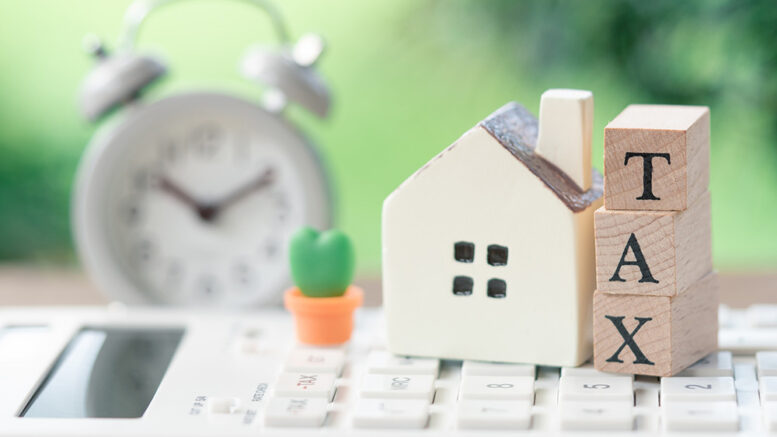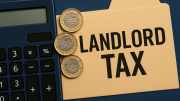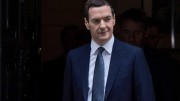Landlords across the UK may be in the Chancellor’s crosshairs, with fresh reports suggesting Rachel Reeves is considering targeted tax increases on rental income to plug a looming fiscal gap-without breaking Labour’s pledge not to raise taxes on “working people”.
According to The Times, Labour MPs are pressuring Reeves to hike taxes on landlords’ income-potentially via National Insurance, a new tax band, or even VAT on lettings. This would sidestep their manifesto promise by casting landlords as outside the “working people” category. But landlord advocates and industry experts are sounding alarm bells, warning that any such move could destabilise the rental market and worsen the housing crisis.
Landlords already taxed fairly, industry argues
Chris Norris, policy chief at the National Residential Landlords Association (NRLA), pointed out that the premise of a new rental income tax is misleading: “Rumours concerning the imposition of a ‘rental income tax’ are misleading as they suggest that such income is not already taxed just like all other personal and business income.”
He added: “Further taxes would increase complexity, dissuade investment and risk deepening the housing crisis.” The sentiment is widely shared among landlords and letting agents who’ve already been hit hard by a wave of fiscal changes since 2015-including the removal of mortgage interest relief and the additional 3% Stamp Duty surcharge.
Norris didn’t mince his words: “Policies that disincentivise investment will inevitably hurt tenants the most, leading to higher rents and reduced choice.”
The Treasury, meanwhile, has remained noncommittal. A spokesperson commented: “We have protected working people’s payslips from higher taxes, while taking the difficult decisions needed to secure the foundations of our economy.”
Three policy ideas on the table-but none without pain
Tax advisors speaking to The Telegraph outlined three potential routes Reeves might take:
- National Insurance on rental profits: Robert Salter of Blick Rothenberg said this could align rental income with self-employment earnings, meaning landlords would pay 6% on profits up to £50,270 and 2% beyond. But Ian Cook of Quilter flagged complications: “The median age of landlords is 58. Many are over state pension age and exempt from NI. Introducing this would either break precedent or create a messy two-tier system.”
- A separate income tax band for rental income: This could be easier to implement. Cook said it would close off current practices where property income is shifted between spouses to minimise tax liability. “This could raise significant revenue,” he said, though it would still hit small landlords who rely on rental income as part of their retirement planning.
- VAT on residential lettings: Salter warned this would be “a real cost which is borne by tenants,” estimating it could push up rents by 20%. While VAT already applies to holiday lets, extending it to standard residential rentals would be unprecedented and politically risky-especially considering that 40% of renters voted Labour in the last general election, according to YouGov polling.
Tenants could bear the brunt-again
The proposal to increase landlord taxes isn’t just about raising revenue; it’s also being framed as an issue of “fairness.” Tulip Siddiq, the former City Minister, previously argued that rent from buy-to-let properties should be taxed “more in line with wages.” Similarly, the Resolution Foundation has called for “a new class of National Insurance” to level the playing field across income types.
But those working at the coalface of the market have urged caution. “Landlords are already voting with their feet,” said one Midlands-based letting agent. “We’ve had three long-term landlords sell up in the last month alone. And guess what? None of those homes are being re-let. They’re gone from the rental market.”
Jean Jameson, Chief Sales Officer at Foxtons, told The Times: “April followed an exceptionally strong March, with many buyers choosing to move early, ahead of the stamp duty deadline. That kind of shift is something we’ve seen before around tax changes.”
And what happens when landlords leave the sector? “We continue to witness, on average, around ten applicants for every property available to rent,” said Propertymark’s CEO, Nathan Emerson. “Unless rental supply rises, we’re just putting more pressure on tenants.”
Even the prospect of VAT has spooked professionals. One south London landlord, said: “I already spend thousands on repairs, licensing, and compliance. If they slap VAT on top of that, I’ll have no choice but to raise rents-or sell up entirely.”
Is there a smarter path forward?
At its core, this isn’t just a debate about tax brackets-it’s about how Britain wants to shape its housing market. Landlords aren’t just sitting on empty properties collecting cheques; they’re plugging the gaps left by decades of under-building and constrained social housing stock.
Any short-term fiscal gain from a tax “raid” could backfire long-term if it pushes landlords out and inflates rents for tenants already stretched to breaking point. As Norris at the NRLA put it, “With demand for rented homes at record highs and supply failing to keep up,” further punitive policies “will inevitably hurt tenants the most.”








